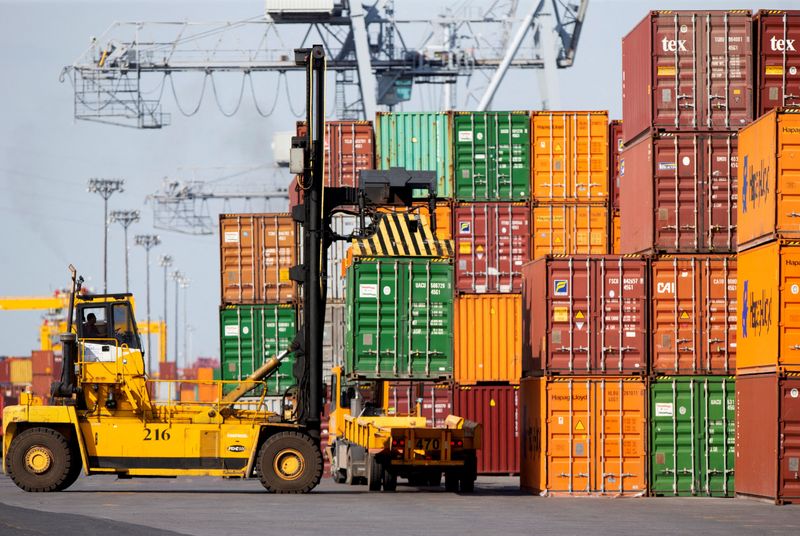By Julie Gordon and Ismail Shakil
(Reuters) -Canada's exports edged down in January even as energy exports rose, while imports fell sharply off record highs as supply chain hiccups continued to disrupt trade patterns, official data showed on Tuesday.
Imports fell faster than exports, swinging Canada to a C$2.62 billion ($2.04 billion) surplus in January, beating analyst forecasts of C$1.60 billion, Statistics Canada said. But that win was overshadowed by disappointing exports.
"It's not a great start to the year. I think that jumps out right away. It is a bit disappointing," said Stuart Bergman, interim chief economist at Export Development Canada.
Exports slipped 0.2%, with declines in 7 of 11 product sectors, led by motor vehicles and parts, and declining aircraft exports. Those declines were almost entirely offset by higher exports of energy products.
Energy exports rose 8.7% in January, led by natural gas exports, up 66.4%. Crude oil and natural gas prices rose sharply from December and have continued to surge. That should bolster Canada's trade snapshot in the coming months.
"Looking ahead, we expect red-hot energy prices will continue to buoy exports, with minimal direct impact expected from the sanctions against Russia," BMO Capital Markets analyst Shelly Kaushik said in a note.
Canada is the world's fourth largest oil producer and sixth largest natural gas producer.
Two-way automotive was another story, with imports of motor vehicles and parts down 13.9% and exports down 9.6%.
"Supply chain issues continued to affect the Canadian auto industry in January, forcing most auto manufacturers to reduce production," Statscan said.
Overall, imports fell 7.4%, after hitting all-time highs for three consecutive months, with declines in 10 of 11 product sections.

December's trade deficit was revised wider to C$1.58 billion from C$137 million.
The Canadian dollar was trading 0.1% lower at 1.2835 to the greenback, or 77.91 U.S. cents.